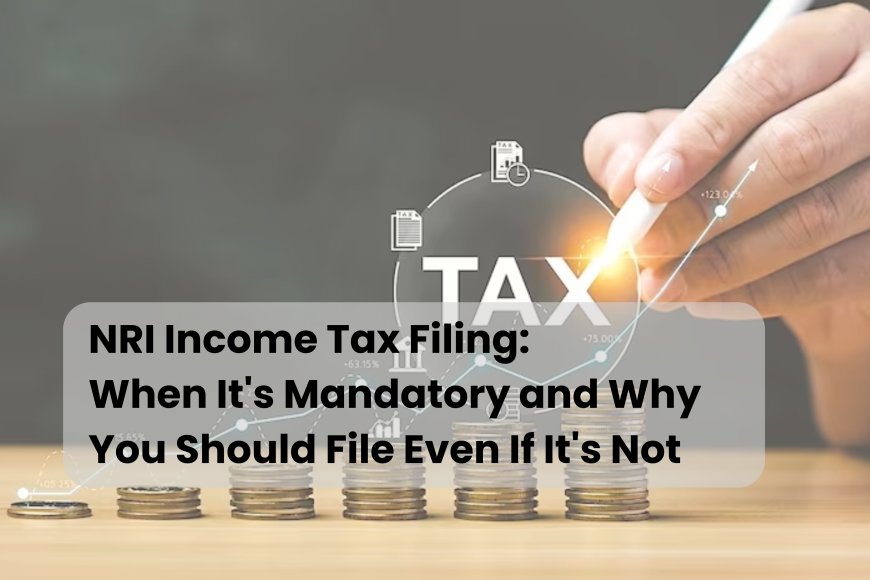Should NRIs File ITR Even If Income is Below Taxable Limit?

When Is ITR Filing Mandatory for NRIs?
As per Indian tax laws, an NRI must file an income tax return in India if:
- Their total income in India exceeds Rs.2.5 lakh (basic exemption limit).
- They want to claim a refund of TDS deducted on income earned in India.
- They wish to carry forward a loss (such as a capital loss).
- They are required to file a return under Section 139(1).
- They are a beneficial owner or beneficiary of any assets located in India.
Why File ITR Even If Not Mandatory?
Even if your income is below the taxable limit, here are reasons why NRIs may still benefit from filing an ITR:
- TDS Refund Claim: Banks deduct TDS @ 30% on interest earned by NRIs.
- Proof of Income: Useful for visa applications or foreign documentation.
- Ease of Compliance in Future: Especially for property sales or remittances.
- Avoid Notices: Filing voluntarily shows transparency and avoids scrutiny.
Documents NRIs Need to File ITR
- PAN Card
- Passport
- Bank account details (NRE/NRO)
- Indian income details
- Form 26AS / AIS
- Investment or asset details
How to File?
NRIs can file ITR online using the Income Tax e-filing portal, preferably using ITR-2 form, which is suitable for individuals with foreign residency and Indian income (excluding business income).
Should NRIs File ITR Even If Income is Below Taxable Limit?
While it's not always mandatory for NRIs to file ITR if income is below the threshold, it is strongly
recommended. It provides credibility, helps with refunds, and ensures smooth future compliance.
Tip: File your return before July 31 to avoid missing out on any benefits-even if your income is nil or below the limit.
What's Your Reaction?
 Like
0
Like
0
 Dislike
0
Dislike
0
 Love
0
Love
0
 Funny
0
Funny
0
 Angry
0
Angry
0
 Sad
0
Sad
0
 Wow
0
Wow
0





























